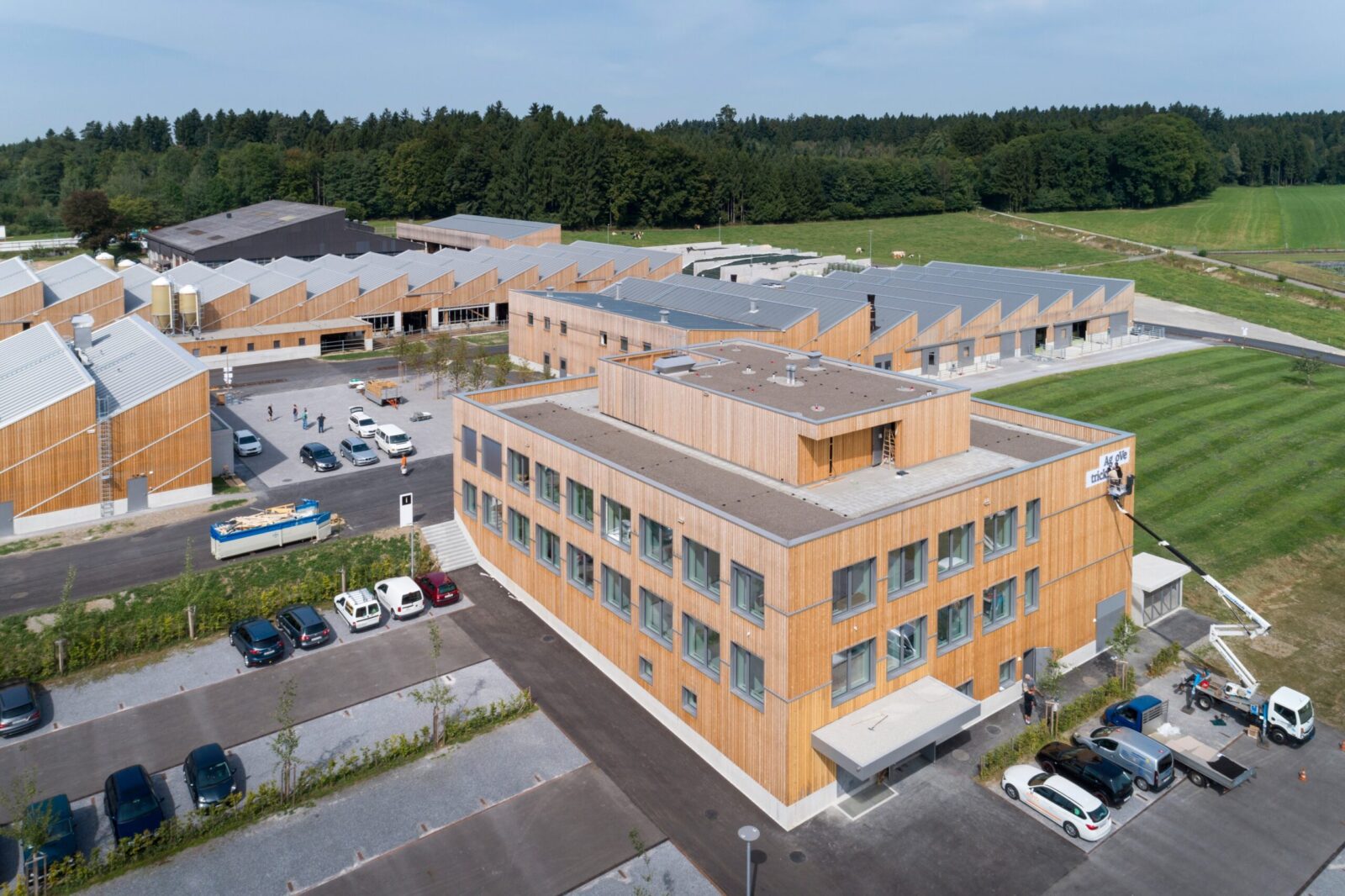AgroVet-Strickhof – new teaching and research platform for agricultural sciences
The interdisciplinary way of working together
After ten years of planning and two years of construction, AgroVet-Strickhof was officially opened on 1 September 2017. The cooperation in the farm animal sector between ETH, the University of Zurich and the Canton of Zurich is unique in its form: the modern facilities enable the cooperation partners Strickhof, ETH and University of Zurich to conduct interdisciplinary research and teaching with direct relevance to agriculture.
With the opening of AgroVet-Strickhof, ETH Zurich began a new chapter in a story that began ten years earlier. In 2006, the then School Board made the strategic decision to strengthen the Agricultural Sciences, as they are key to some of the core issues of our time – these are topics such as growing world population, climate change and sustainable land use. In order to find well-founded answers here, a university needs not only the best minds, but also the right structures and infrastructures. In 2012, ETH therefore founded the Department of Environmental Systems Science and, the year before, the World Food System Center. The university decided to collaborate in the area of farm animals with the Vetsuisse Faculty of the University of Zurich and the Cantonal Competence Centre for Agriculture and Food Economics, Strickhof. AgroVet-Strickhof took shape.
From feed to food
At the Strickhof site in Lindau in the canton of Zurich, a series of new buildings with state-of-the-art facilities thus grew over the course of a few years. The aim was and is to be able to examine the value chain according to the holistic approach of “from feed to food”, i.e. from feed production via the animal to the food.
Of particular importance is the new Metabolic Centre. Equipped with respiration chambers for large and small animals as well as a metabolism stable, it serves to research the fundamentals of efficient and environmentally friendly livestock systems. On the ETH side, three professorships from the Institute of Agricultural Sciences in particular are using the new facilities: Susanne Ulbrich, Professor of Animal Physiology, Hubert Pausch, Professor of Animal Genomics, and Michael Kreuzer, Professor of Animal Nutrition. The latter accompanied the project closely from the beginning.

Interdisciplinarity is key
The great added value of AgroVet-Strickhof lies in the close connection between basic and application-oriented research. Impulses flow in both directions. The close proximity of agricultural scientists, veterinary surgeons and practitioners ensures that there is an ongoing exchange on many levels. “Interdisciplinarity is one of the most important keys to innovation,” also emphasised the then ETH President, Lino Guzzella, in his welcoming address at the opening, before joining Markus Kägi, Construction Director, Michael Hengartner, Rector of the University of Zurich, and Bernard Lehmann, former ETH professor and later Director of the Federal Office for Agriculture, for the official opening ceremony.
In addition to the main site in Lindau, the AgroVet-Strickhof cooperation also includes the Wülflingen farm site, Früebüel on the Walchwil mountain in the canton of Zug and Alp Weissenstein in the canton of Graubünden. Thus, research projects can be realised at different altitude levels.